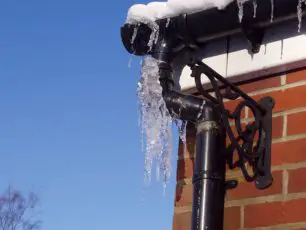Renting vs Buying: Pros and Cons and How...
In today’s society, deciding whether to rent or buy a property...
The topic of energy prices in the UK has been dominating the news in recent months. As winter fast approaches, thoughts turn towards rising gas and energy bills, and many people worry over how they can cut costs and keep warm this season.
On October 1, the government introduced a cap on energy costs of £1,277 a year. The Consumer Council estimates that there will be an extra £182 added to the average bill. If you’re not on a fixed tariff, your bill could rise by £139 a year, and a prepayment meter could rise by £153.
Damart’s research shows more than half of UK adults (55%) have worried at some point about the potential cost of their heating bills, and a further 15% even divulged that heating costs are a constant source of concern for them.
Industry Group Oil and Gas UK reports that prices have risen 250% since January and 70% since August.
It seems that there are no energy price cuts in sight, so what can you do to reduce your gas and energy bills? Here are energy-saving tips you may not be aware of.
Andrew Collinge, heating product manager of BestHeating, recommends, don’t block radiators – If you have a sofa or an armchair up against a radiator, move it away. If you have a radiator cover, throw it out! Placing objects over the radiator will block the flow of air, resulting in your boiler working harder and costing you more money.
Protect your pipes – Foam lagging is a great insulation tool to help prevent pipes from freezing in cold weather, ensuring heat can’t escape easily. Covering them in insulating material maximises their efficiency and will also reduce heat loss from your hot water pipes.

Check your boiler – MORE THAN Insurance believe it’s crucial to have your boiler serviced before winter sets in, as it can help you make sure that your boiler is ready for the cold months ahead and will also reduce the risk of unexpected breakdowns and harmful gas leaks.
Prepare your roof -If your roof tiles become loose, you can experience reduced insulation and warmth and also be at risk for water leaks. A quick way to inspect your roof is to look at it from the ground and see if any tiles appear missing, loose or broken. For extra certainty, you can ask a local tradesperson to conduct a thorough check of your property.
Rhiannon Philips’s blog on Nerdwallet provides a range of useful steps we can take to become more energy efficient including, having a long-standing relationship with a supplier doesn’t necessarily translate to a great deal. Spend a little time researching and comparing deals to see if you can switch to a cheaper option. However, bear in mind that now might not be the best time to switch as several suppliers have stopped trading, and those that are left may not be offering very competitive tariffs. Especially if you are currently on a fixed tariff, it will probably be best to stay put as you are unlikely to find anything cheaper at the moment.
Check if you’re in credit with your energy supplier – If you pay per month, there’s a chance you’ve been paying for more than you’ve used. You may have built up a large amount of credit that you could ask the supplier to refund.
Turn off electrical items – One of the easiest ways to save energy is to turn off any items you don’t use. This means that you should unplug all of your electrical devices when you’re not using them, even if they’re in standby mode or plugged into the socket. Energy Saving Trust estimates you could save £35 a year by switching off unused appliances.

Wash on lower temperatures – If you wash your clothes at high temperatures, you will use more energy, and it won’t always be necessary to do so. Washing at a lower temperature will do the job just as well and use less energy. Energy Saving Trust says washing at 30℃ degrees could save a household £8 a year.
Boil the kettle once – How many times have you boiled a kettle twice because you didn’t use it after the first boil? Probably too many to count! It’s not necessary to boil water multiple times, so make sure you only do it once.
Clean the coils of your fridge – Your fridge is always on, so if it’s not working efficiently it could be squandering a lot of electricity. Remove any dust that has built up on the coils at the back of your fridge.
Defrost your freezer – Ice buildup will cause your freezer to run more slowly and use more energy to keep frozen foods cold.
Use a slow cooker – Even though slow cookers are on for a long period, they can be more energy efficient than a standard oven. Surprisingly, they typically use the same amount of energy as a lightbulb.
Layer up with an extra jumper – Is your home a little too cold? Always ask yourself if you need to put the heating on. Putting on a jumper or some thicker socks could solve the problem without turning on the heating.

Only heat the rooms you’re using – You can control the level of heat in a particular room, for example, if you’re not going to be in your bedroom until the evening, you can turn the heating off in that room during the day.
Shut the doors – By keeping doors closed, you can prevent heat from escaping your house, prevent draughts and maintain a comfortable temperature in the rooms you use.
Turn the thermostat down – Even if you turn your thermostat down by as little as one degree, Energy Saving Trust estimates that if you live in a three-bedroom or a semi-detached house, you could save £55 a year (based on energy prices in June 2021).
Insulate your hot water cylinder and your pipes – According to the Energy Saving Trust, insulating your hot water tank with an 80mm thick ‘jacket’ could save £18 a year.
Switch off your lights – Do you often forget to turn off the lights in your house? Energy Saving Trust estimates this simple act of turning off your lights when leaving a room could save you £11 a year.
Use LED light bulbs – The next time you’re in the market for lightbulbs, be sure to purchase LED bulbs. They use much less energy than halogen bulbs, saving you energy in the long run. According to Innr, making the switch to LED will save you money. The Innr LED smart bulbs are energy-efficient, using 20% of the energy a halogen bulb would use, saving you an additional £75 a year on energy bills.

Choose energy-efficient appliances – Appliances account for a large percentage of home energy usage, so making sure we buy energy-efficient models can help us reduce overall energy usage. Appliances are labelled A to G, with A being the most energy-efficient.
Upgrade your boiler – Modern boilers are more energy-efficient than older models, so you should expect them to heat your house more effectively. Combi boilers generally provide the best energy ratings, but the amount of energy saved will depend on your home and how much hot water you use.
Bionic business comparison experts who specialise in comparing energy contracts released a commentary focusing on staying warm this winter and advocate checking your EPC rating.
An Energy Performance Certificate (EPC) rates the energy efficiency of a building. Ratings are given on a scale of A to G, with A being the most efficient and G being the least. As of October 1, 2008, all non-domestic buildings under construction, on sale or available for rent must hold a Non-Domestic Energy Performance Certificate (NDEPC) and a Recommendation Report (RR).
A recent survey shows that the difference in price between a D-ranked house and a house ranked A or B sits at only around 1.7%. To make your home energy efficient, you would need to spend thousands of pounds on new installations — something the average homeowner may not be able to afford.
When we come to calculate future energy payments, we should not rely on the EPC rating alone to help us make a decision; we should take additional factors into account, including the significant investment a G home could encounter in the long run.
“The government aims to update as many homes as possible to energy efficiency rating C by 2035 ‘where practical, cost-effective and affordable. It also aims for all fuel-poor households, and as many rented homes as possible, to reach the same standard by 2030.”
Samsung has announced the launch of – SmartThings Energy in the UK, a world-first service that will allow UK households to manage their energy usage with any UK provider, directly from their phones and free of charge.
Integrated onto Samsung’s SmartThings platform and powered by the smart energy technology company Chameleon Technology, customers can add their smart meter to the platform, monitoring how much energy they’re using, how much it’s costing, and set and track budgets all from their device.
With increasing energy prices and price caps, more people are taking advantage of energy management and whilst it may be difficult to control bills right now, once prices stabilise and the threat of a price cap increase in 2022 becomes a reality, customers will feel more empowered to ensure they not only pay less but waste less and use less energy this winter. Following the recent price cap increase, experts have warned homes could face a winter energy bill increase of more than £139 a year.
Commenting on this announcement, Teg Dosanjh, Director of Connected Services and Technology, Samsung UK and Ireland said:
“In a time when people are feeling a lack of control over their energy usage, with very limited options to mitigate increasing costs, we’re pleased to be able to drive change in the energy space by launching SmartThings Energy.”
Energy efficiency grants – Check which energy-saving grants you’re entitled to on the Simple Energy Advice website.
Enter your postcode to discover how you can improve your home’s energy efficiency using the Simple Energy Advice calculator.
Every year the temperature drops, and soon enough, we find ourselves reaching for another layer of clothing as we head out the door. If only we had designed our homes with energy-saving tips in mind, we might enjoy more pleasant afternoons and evenings without spending a fortune on utility bills.
By adopting the 25 energy-saving tips, your home will be more energy-efficient, saving you money on your monthly home energy bills.
Photo credit: Rainbow International